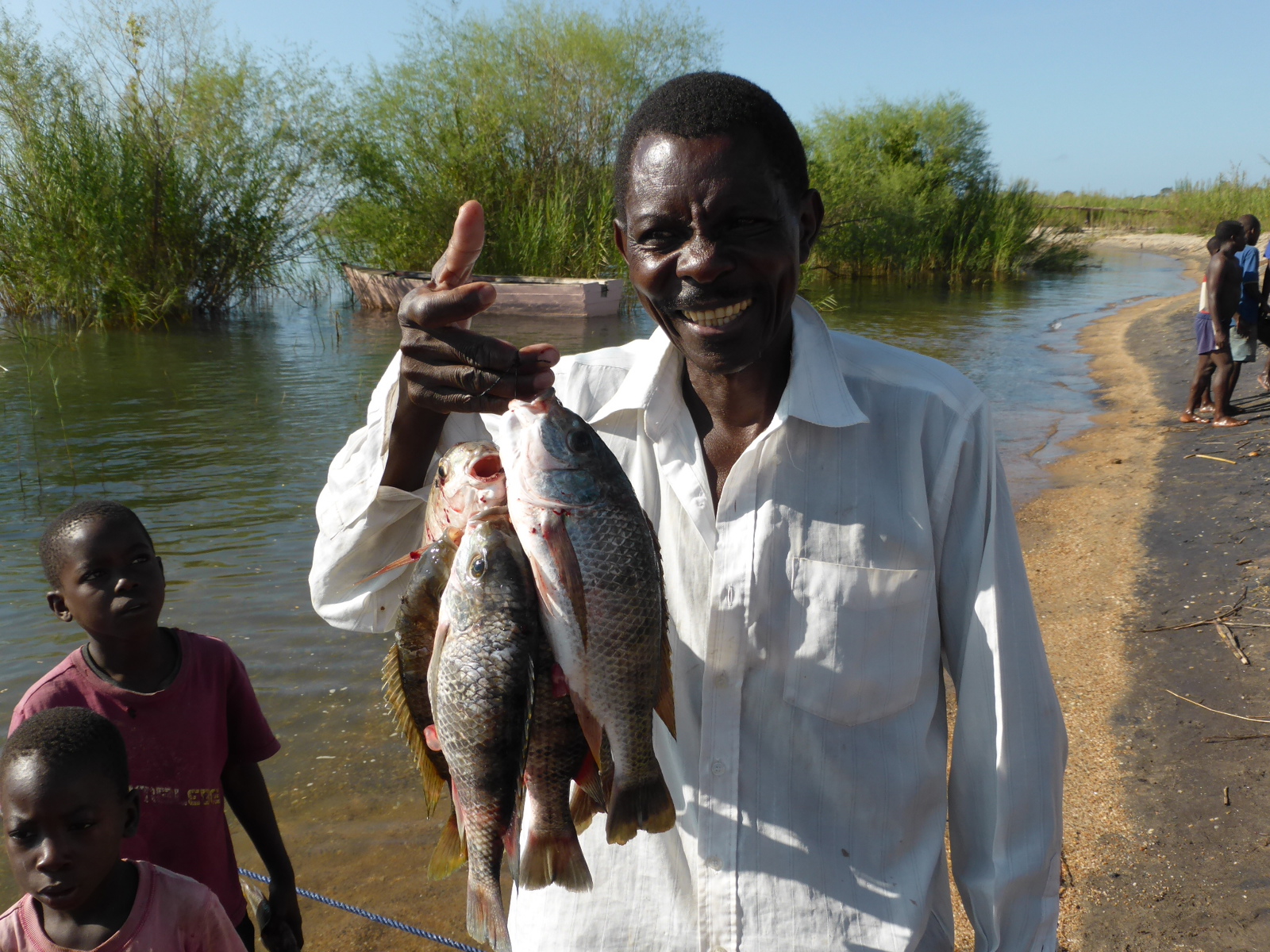
WildLife Foundation provides three-year grant for Ripple Africa’s Fish for Tomorrow initiative
In 2022, the WildLife Foundation became an official partner of Ripple Africa. As part of the partnership, WildLife Foundation provided a three-year grant for its Fish for Tomorrow initiative, supporting community-led fisheries management in two Districts in Malawi, Africa: Nkhata Bay and Nkhotakota.
21 July 2025
Fish for Tomorrow was first launched in 2011 in Nkhata Bay District, Malawi. The programme built on Ripple Africa's experience of community-led forest conservation to develop a simple approach, which was trialled along a 40 km area of lakeshore in the district. This initial success has laid a strong foundation for the programme, which now operates across five districts with the goal of protecting 736 km of lakeshore.
The results from the third year of our collaboration have just come in, showing significant progress.

An overview of the project’s success
In Nkhata Bay District, the Ripple Africa team is working with 143 Beach Village Committees (BVCs), who are protecting 32 breeding areas, as well as Sub Fisheries Associations, umbrella organisations at Senior Chief level to ensure consistency of approach. In the last 12 months, over 440 meetings were organised to promote awareness of proper fishing methods to fishing community members, specifically the importance of using multifilament nets rather than illegal monofilament nets, which do not biodegrade and remain in the water for many years. The key objectives at these meetings were to address the issue of illegal nets and the use of gill nets during the closed breeding season and to educate community members on fisheries management plans.
The team also held three stakeholder meetings with traditional authorities (senior chiefs), district councillors, police, judiciary, chairs of Sub-Fisheries Associations and District Fisheries staff. The goal was to increase awareness of fisheries regulations and the disposal of confiscated fishing gear.

The project has seen active participation from BVCs, who are developing a better understanding of management plans and are effectively enforcing regulations, including confiscating illegal nets. No sign of illegal fishing has been found in most breeding areas, which is a clear result of fishers’ high compliance with the regulations. Fishers from Salima District also attended training sessions on using larger-meshed Bunt 12 nets for usipa fishing – an effort to encourage them to use larger meshed nets to catch larger fish – which are now being used more extensively in Nkhata Bay District.
In Nkhotakota District, Joyce Banda has run the project with the support of three coordinators, and is now working with 65 BVCs who are protecting 13 breeding areas. In the last 12 months, Joyce and the team have held seven stakeholder meetings to share information with the District Executive Committee and the District Agricultural Extension Coordination Committee members and the police.
They have also held meetings with BVCs and Fisheries Associations to assess their capabilities, boosting their knowledge of bylaws and their responsibilities. Schoolchildren were also engaged through these meetings to ensure that they understand the need for fish conservation.
Interestingly, the importance of the closed fishing season has reached over one million people through a unique but effective way – radio jingles.

The challenges they face
But the journey has not been without challenges. Both districts face significant issues, including the continued use and sale of illegal fishing gear, particularly monofilament and under-meshed nets that threaten fish populations.
Fuel shortages and seasonal high water levels have made it difficult to access remote breeding areas, further complicating enforcement. Inactive or underperforming BVCs, poor communication among local authorities, and low female participation in public awareness meetings are just some of the barriers that the team faces.
In Nkhata Bay District, BVCs are working hard to clear the spread of invasive water hyacinth in breeding areas. In Nkhotakota District, resistance to change within some communities remains a challenge. However, the successful restructuring of six BVCs has set a great example, driving further progress.
Looking forward
Ripple Africa aims to expand Fish for Tomorrow to the remaining lakeshore districts. Before that, it will continue running the project in the five districts in which the project currently operates, as continuing its impetus is crucial here.
The project focuses on shifting behaviours and values from a ‘live for today’ mindset towards a more sustainable approach. Achieving this level of behavioural change will require years of continued support, training, and monitoring. However, the results Ripple Africa have achieved in the past three years is a testament that it is a realistic and achievable goal.
WildLife Foundation is proud to have supported Ripple Africa and the Fish for Tomorrow project in their mission to create a sustainable future for communities in Malawi.
For more information about Ripple Africa and its projects, click here.
